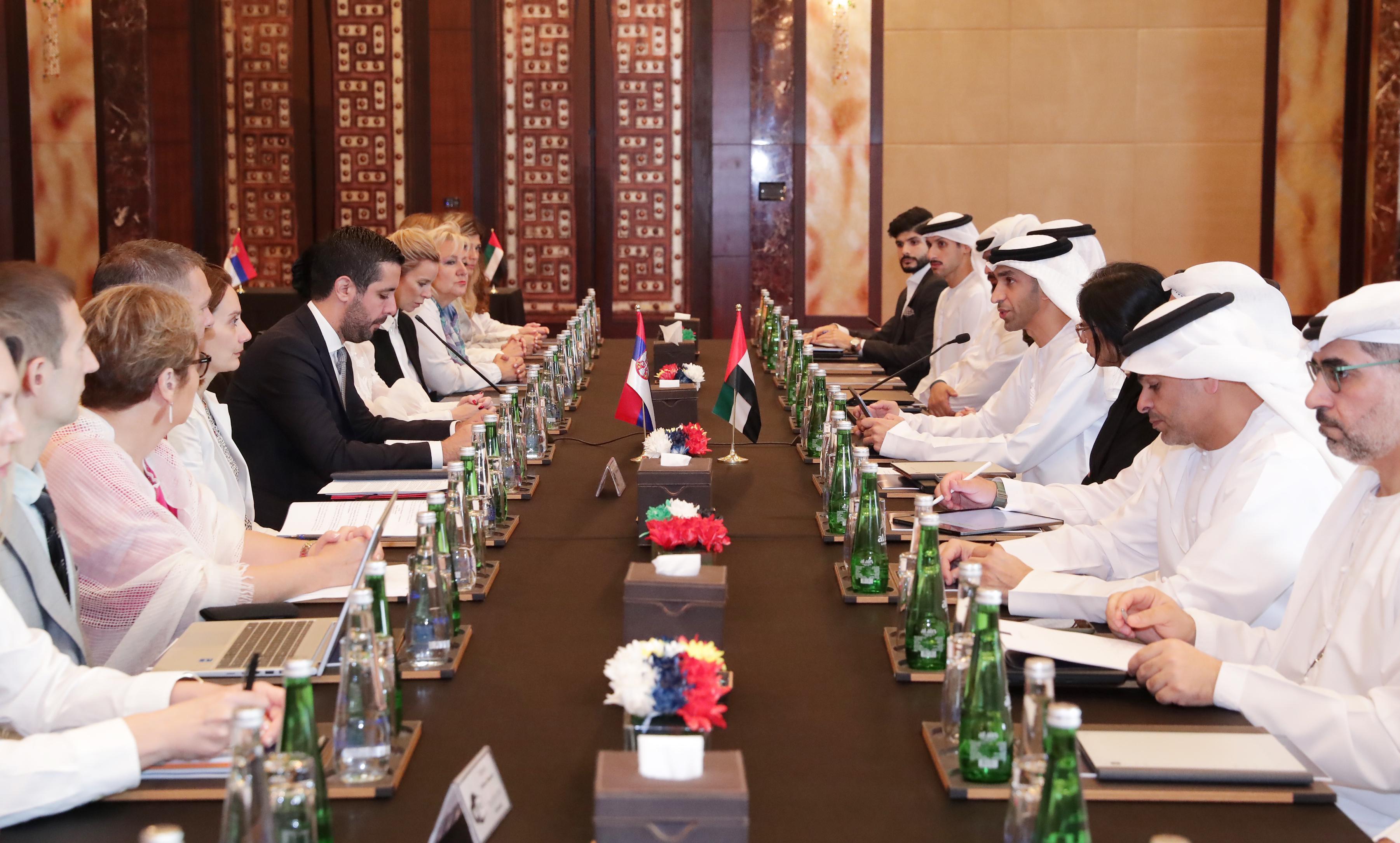Dubai, UAE–The United Arab Emirates and Serbia have begun negotiations to establish Comprehensive Economic Partnership Agreement, paving the way for increased trade and investment flows and private-sector collaboration.
Dr Thani bin Ahmed Al Zeyoudi, Minister of State for Foreign Trade, and Tomislav Momirovic, Serbia’s Minister of Internal and Foreign Trade, attended the first round of talks, which took place in Dubai.
The pursuit of a CEPA reflects growing relations between the two nations. In the first half of 2023, bilateral non-oil trade reached US$57.6 million, surpassing the total recorded for the whole of 2020.
The UAE is now the third-largest market for Serbian exports in the Middle East, while FDI has been flowing into a number of high-priority sectors including agriculture, food security, real estate, infrastructure, and logistics.
The negotiations also follow a series of high-level meetings, including the visit in June of President Sheikh Mohamed bin Zayed to the Serbian capital Belgrade, when he was received by Serbian President, Aleksandar Vucic.
The visit resulted in several agreements designed to expand cooperation in sectors such as renewable energy, agriculture, food security, technology, and artificial intelligence.
Dr. Thani Al Zeyoudi said the UAE is expanding its trading partners around the world as it pursues its target of AED4 trillion in foreign trade by 2031. The UAE leadership considers trade as one of the most important catalysts for growth, economic diversification and long term, sustainable development.
“The launch of the negotiations between the UAE and Serbia is an important milestone in the relations between the two countries. Serbia is an emerging economy in an increasingly important part of Europe, with strategic links to many vital markets in the Balkans and Eastern Europe, while the UAE can serve as Serbia’s gateway to markets in the Middle East, Asia and Africa. The CEPA will not only improve access to these global supply chains but enable our private sectors to build long-term partnerships and explore new investment opportunities.”
For his part, Tomislav Momirović stressed that the economic relations between Serbia and the UAE are based on solid foundations, which have been embodied by projects such as Belgrade on the Water development, and investments by major Emirati companies such as Al Dahra and DP World, which is developing the port of Novi Sad. “The Republic of Serbia is committed to supporting and stimulating the private sector and attracting new foreign investments to the country. A Comprehensive Economic Partnership Agreement with the UAE will encourage these trends and create many opportunities for both sides,” he said.
A Comprehensive Economic Partnership Agreement between the UAE and Serbia will seek to improve bilateral non-oil trade by reducing or eliminating customs duties, removing unnecessary barriers to trade, protecting intellectual property rights, supporting small and medium-sized companies, and facilitating mutual investment flows. It also aims to consolidate cooperation in the sectors of aviation, agriculture, construction, contracting, real estate, defense industries, and others.
To date, the UAE has successfully concluded CEPAs with India, Indonesia, Israel, Türkiye, Cambodia and Georgia. The first four agreements have already come into effect.







